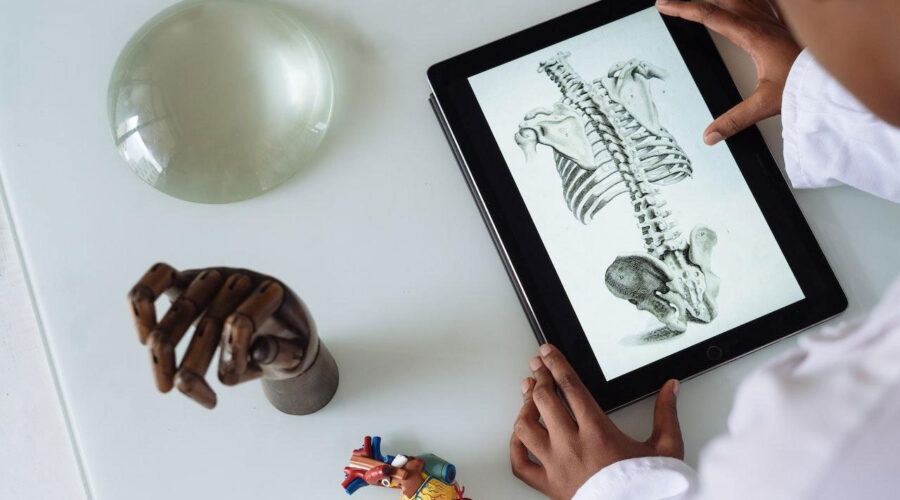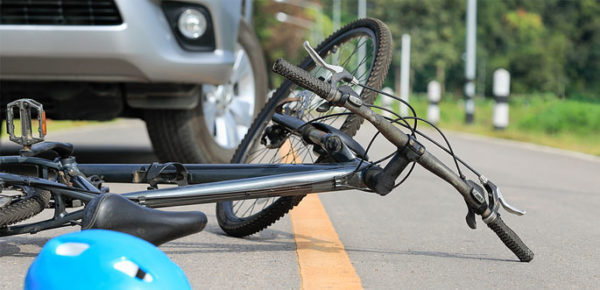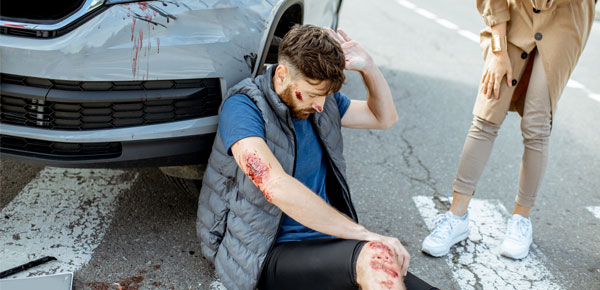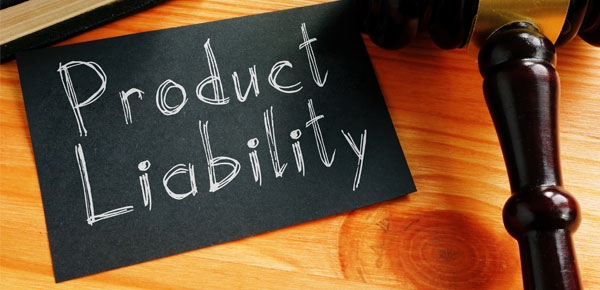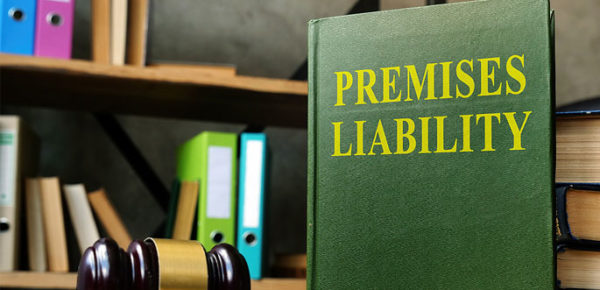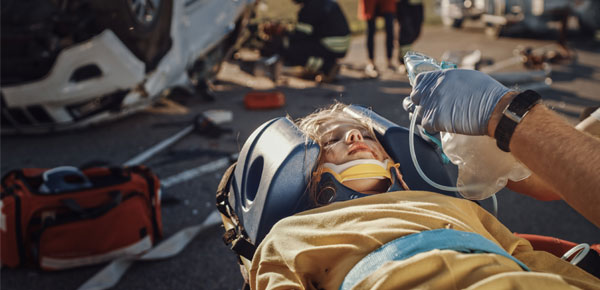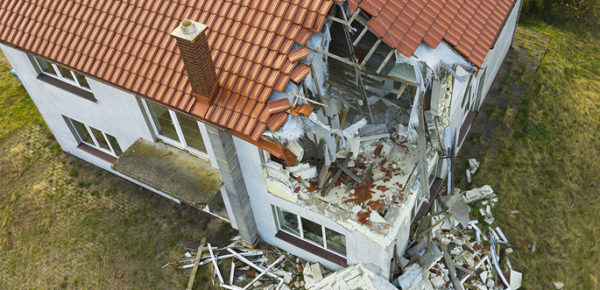Suppose you have been injured in an auto accident, by a defective product, dangerous workplace settings, or any circumstance that was the negligence of another. In that case, you have a right to fair compensation. In the event you have suffered an injury, documenting your medical journey is paramount. Medical evidence plays a critical role in proving your injuries were the result of the accident, the extent of said injuries, and whether or not your injuries are lifelong.
Without proper medical evidence provided by a doctor, nurse, rehabilitation specialist, or another type of lawfully recognized medical professional, it may be impossible to prove your case. This is why it is always recommended that you seek medical attention right away and follow the advice given to you by a medical professional if you have been injured by someone else’s dereliction of duty. Failure to follow sound medical advice may also hinder your ability to collect compensation for your injuries.
The Different Types of Medical Evidence
There are several different types of medical records. Each plays a role in proving your case, and together, they can create an “ironclad” lawsuit.
Medical records – According to the National Institutes of Heath, “Medical records are the document that explains all detail about the patient’s history, clinical findings, diagnostic test results, pre and postoperative care, patient’s progress and medication. If written correctly, notes will support the doctor about the correctness of treatment.”
Imaging tests – Imaging tests are used to help diagnose injuries or diseases, plan the direction for treatment, and help discover whether or not a current treatment is the right one. They use energy and radioactive substances or a combination of the two, such as x-rays – which rely on high-energy radiation, and ultrasound imaging – which is energy-based sound waves. It also encapsulates radio waves and even some radioactive substances.
Testimony from medical experts – Testimony from an expert witness must be reliable, sound, reasonable, and able to be substantiated or demonstrated. The testimony of a medical expert plays a substantial role in negotiating with insurance companies or during civil and criminal trials. This is yet another reason why you should not only seek medical treatment right away after an accident, but you should also follow all advice given to you by your primary care physician, and take the time that is recommended for proper rehabilitation.
Medical bills – Keeping all medical bills and documentation or medical notes can also go a long way in proving the extent of injuries. They are also important documents that help to calculate fair and just compensation after an injury. Without proper documentation such as medical bills to prove the extent of your injuries, calculating a fair dollar amount for your injuries will be hard to do.
How Medical Evidence Can Help Your Case
Medical evidence can help you by establishing cause. Establishing the cause of the injury, as mentioned previously, is paramount in connecting the injury to the accident. Medical evidence is the single most important piece of evidence you can produce during a lawsuit. Without it, there is essentially no case. Or at least not much of one. Medical evidence can also help to establish liability by connecting an injury to an accident.
Medical evidence continues by proving the severity of the injuries suffered. Without authentic medical evidence, such as a record of tests and diagnoses, severity and treatments, and a doctor’s record of patient progress and recovery, negotiating a settlement with an insurance company, or, taking the case to trial will be much harder to prove.
Likewise, a doctor’s professional medical opinion may also state that a full recovery may not be possible and that medical treatments should be ongoing. Without medical evidence of this, there would be no way to prove it. Medical evidence such as proof of medical testing, a diagnosis, a record of treatment, participation in the course of treatments, and a record of the patient’s recovery progress.
Determining the value of damages also depends on the evidence presented. Calculating fair compensation for injuries cannot be done with a high amount of accuracy without it. And without the medical evidence establishing accuracy by way of medical expenses for treatments, prescriptions, rehabilitation, and possibly ongoing therapies, insurance companies – and courts – may not be able to justify your proposed dollar amount.
Obtaining Medical Evidence
Ensure that you have sufficient medical evidence when you need it. First, you should always get the proper medical attention after you have suffered an injury. Before negotiations or a trial, be sure to request all medical records. However, you should be as far along in your recovery as possible before submitting your claim to begin negotiations. You should be fully recovered if possible or your injuries should be declared lifelong or non-recoverable.
You can also give your attorney permission to collect all medical documentation on your behalf. Your attorney may also request written testimony from your doctor to accompany your medical records. This testimony may greatly help your case when it comes to proving your condition before, during, and after treatment.
The Admissibility of Medical Evidence
When it comes to the admissibility of medical evidence in the state of California, a healthcare provider’s records regarding a patient’s symptoms and medical diagnosis are admissible in court in order to prove the nature and extent of the injuries, as long as the records are directly based on the doctor’s firsthand observations.
If the case goes to trial, the court will ensure that all medical evidence is properly authenticated. The court will attempt to determine if the medical evidence you have submitted appears to be genuine so that its admission may help the fact-finder(s) which is typically the jury. Second, the fact-finder(s) will decide whether or not they believe the evidence to be genuine.
You must also outweigh other considerations to ensure admissibility.
First, the evidence must be relevant to the case. The evidence must not be prejudicial or confusing. The admitted evidence must also be impacting and not found to be a waste of time or based on hearsay.
Conclusion
In conclusion, medical evidence is critical in receiving fair compensation for injuries sustained due to the negligence of another.
First, always be sure to seek medical attention right away after suffering an injury. Waiting too long before getting proper medical attention, diagnosis, and treatment can make injuries worse. It can also hinder your lawsuit, making it more difficult for your attorney to get you the most fair settlement possible.
Second, be sure to always follow the advice of your physician when it comes to testing, diagnosis, treatment, rehabilitation, and possible ongoing therapies. Do not miss any scheduled appointments and be sure to follow up with your doctor regularly, keeping them abreast of any changes in your recovery, side effects of prescriptions, etc.
Third, always be sure to document your recovery personally and obtain all medical records that will act as evidence during negotiations or a trial. Your attorney can collect this information for you at your request.
If you’ve been injured, contact us today at Pyramid Legal. We will explain to you your rights, options, and a clear path forward. You deserve fair compensation and we’re here to ensure you receive the best settlement possible.
